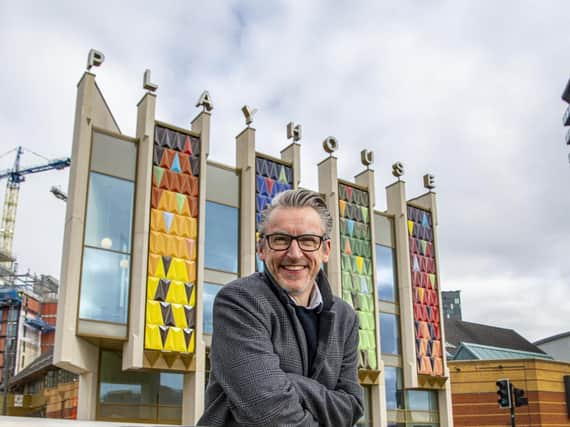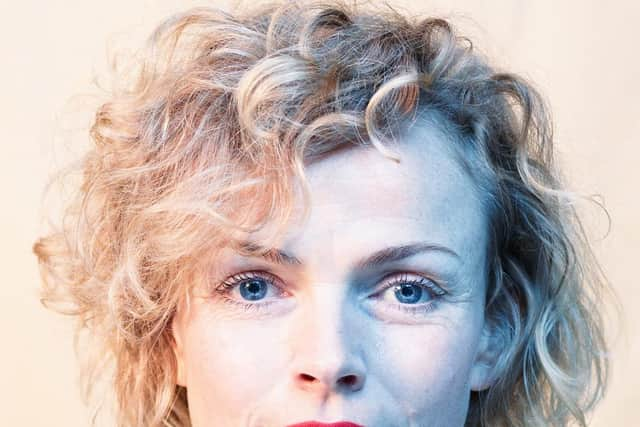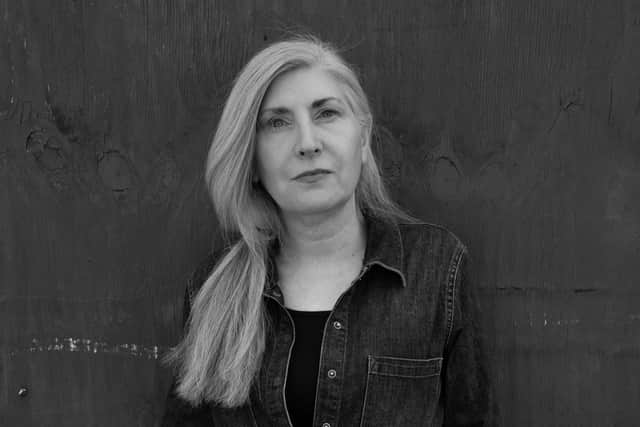Leeds Playhouse returns with a celebration of theatre over 50 years


Now that we’ve had the announcement that theatres will definitely be opening as of Monday, it feels good to look at some of the details.
Two of the region’s leading producers of new work, the Leeds Playhouse and Sheffield Theatres, have decided to open their doors with work that will provide a real fillip to the region’s theatre artists, many of whom have felt more than a little lost and abandoned over the past year-and-a-bit.
Advertisement
Hide AdAdvertisement
Hide AdNext week I’ll be taking you to Sheffield and the appropriately named Together season, but this week it is to Leeds, the theatre tempting us back into its public spaces with a collection of work celebrating its half century.


The theatre began its life in September 1970 at the university campus before moving in 1990 to its current Quarry Hill location. The theatre had planned a series of celebratory events in 2020 to mark the 50th anniversary but, well, you know. Instead the theatre marks the anniversary this year with Decades: Stories of the City, the first production audiences will be able to see inside the theatre since last autumn.
Six new monologues written by six writers, each with a strong connection to the Playhouse and each with their own perspectives on Leeds and the region, the first shows to welcome audiences back into the space are significant for a number of reasons.
The theatre’s artistic director James Brining says: “Many of the people we are working with this year have been supported through our Furnace programme, which enables local artists to develop their practice as well as new projects. We want the work we are creating to show how this 50-year-old theatre has become the lifeblood of the community it serves, championing new work, celebrating locally-rooted artists and engaging with people across communities.”
Advertisement
Hide AdAdvertisement
Hide AdIt’s been a really tough year for theatre makers. That the Playhouse has commissioned six writers to produce new monologues which will be put on stage by six different directors and actors is a real statement about supporting local talent.


The writers whose monologues will make up Decades: Stories of the City are Simon Armitage, Leanna Benjamin, Kamal Kaan, Alice Nutter, Maxine Peake and Stan Owens, each taking a particular decade from the Playhouse’s lifespan.
The directors are James Brining, the Playhouse’s associate director Amy Leach, resident assistant director Sameena Hussain, Common Wealth Theatre’s Evie Manning, alongside Tess Seddon and Amanda Huxtable.
It’s a smart move, coming up with an opening production that sees a dozen creatives (plus all the actors and behind the scenes creatives of course) put to work.
Advertisement
Hide AdAdvertisement
Hide AdAlice Nutter, whose impressive writing career began with a course at the Leeds Playhouse, says: “It’s a privilege to be asked to take part in this season. We are all sticking our toes in the water, wondering what it will be like to be part of the outside world again and if I wasn’t writing one of these stories I would still want to travel to the theatre to see them.
“What I really love about the Playhouse in recent years is that the theatre feels like it belongs to the city rather than just being somewhere ‘cultural’ that people might go once a year to see a Christmas show. These stories are not just set in Leeds, but hopefully question and illuminate the times. Although all the writers have taken different decades, I am dying to see what the whole thing says about our city.”
If the past year has shown us anything, it is surely that the places where we gather together to hear stories are absolutely invaluable. They are to be protected and, as soon as we can get back into them, celebrated.
Nutter’s monologue will be celebrating the 1980s, the decade she arrived in Leeds to become part of the anarchist pop punk outfit Chumbawamba.
Advertisement
Hide AdAdvertisement
Hide Ad“I arrived in Leeds when there was loads of creative political stuff going on. Wherever you go, you take yourself and it was a joy to remember what it was like to be a naive working class 20-year-old seeing people living in such different ways.
That period influenced the rest of my life, as I think it did many people. When people think about the eighties, they generally go to the miners’ strike and pop culture, but there was other stuff going on like experiments in communal living, different political struggles and a lot of young people determined to change the world.”
Fellow Decades writer Maxine Peake has a similarly complex relationship with the decade she is bringing to life. “I have a real love-hate relationship with the 90s. It seemed to hold so much promise that didn’t ever really deliver for me – it is the decade that formed me, though. I attended drama school in the 90s – big things happen in your teens and early 20s that mould you – it was a tonic being able to look back at the shambles that was the 90s.”
While we have all been on an enforced absence from the theatre, there has been more than a small degree of frustration given the controls that can be put in place when in a venue, making it much safer, the argument went, than other places which were allowed to open earlier. Nutter can’t wait to get back.
Advertisement
Hide AdAdvertisement
Hide Ad“I think being back in the theatre is going to feel good, not least because the Playhouse staff are so on top of all the Covid stuff. Because it feels so safe in there, I think we will all be able to just sit back and enjoy the show.”
Decades: Stories of a city
1970s: Simon Armitage, The Bodyguard, set in 1979 with news reports full of murder.
1980s: Alice Nutter, Nicer than Orange Squash, a girl moves to Leeds from a small town.
1990s: Maxine Peake, Don’t You Know It’s Going to Be Alright, featuring the Spice Girls and club nights.
Advertisement
Hide AdAdvertisement
Hide Ad2000s: Leanna Benjamin, The Unknown, seeing the new millennium in.
2010s: And after We Sailed a Thousand Skies, by Kamal Kaan, a woman asks ‘where is home?’.
2020s: Pie in the Bus Stop, by Stan Owens, Jamie’s in a bus stop, sitting and thinking.